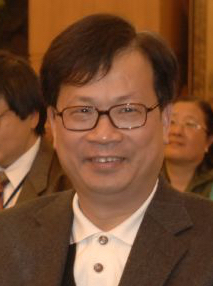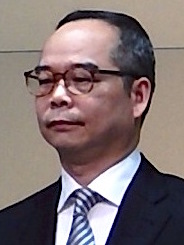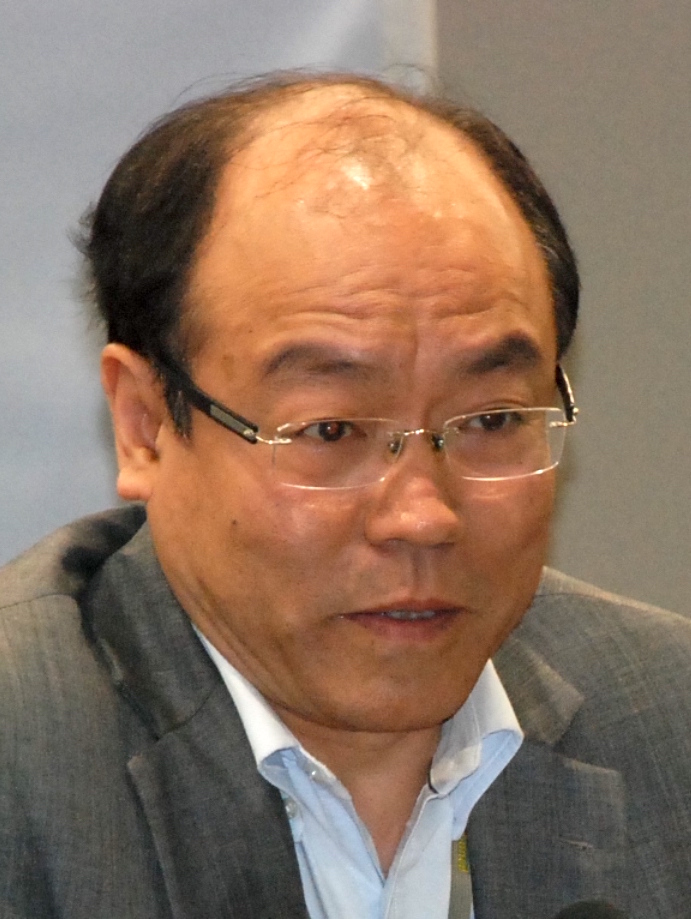|
Hong King (constituency)
Hong King is one of the 27 constituencies in the Sai Kung District in Hong Kong. The constituency returns one district councillor to the Sai Kung District Council, with an election every four years. Hong King constituency is loosely based on Hong Sing Garden and King Ming Court, also with four private housing estates in Tseung Kwan O Tseung Kwan O New Town, commonly known as Tseung Kwan O ( zh, t=將軍澳新市鎮, j=Zoeng1 gwan1 ou3 san1 si5 zan3), is one of the nine New towns of Hong Kong, new towns in Hong Kong, built mainly on Land reclamation in Hong Kong, reclaimed ... with estimated population of 17,828. Councillors represented Election results 2010s 2000s 1990s References {{Hong Kong Sai Kung Council Constituencies Tseung Kwan O Constituencies of Hong Kong Constituencies of Sai Kung District Council 1994 establishments in Hong Kong Constituencies established in 1994 ... [...More Info...] [...Related Items...] OR: [Wikipedia] [Google] [Baidu] |
1994 Hong Kong Local Elections
The 1994 Hong Kong District Board elections were held on 18 September 1994 for all 18 District Councils of Hong Kong, districts of Hong Kong and 346 members from directly elected constituencies. It was the last district-level elections in the colonial period before the handover of Hong Kong in 1997. It was the first elections to be held after the abolition of the appointed seats as proposed by the 1994 Hong Kong electoral reform, new electoral arrangements, as the last step of the democratisation by the then Governor Chris Patten before the handover. Despite set against the British-Chinese dispute over Hong Kong's political reform, the election was influenced by local issues such as bus fares and garbage collection. The turnout of 33.1 per cent, slightly higher than the 32.5 per cent turnout for the 1991 Hong Kong local elections, 1991 District Board elections. Almost 700,000 votes cast were 60 per cent more than in the previous election and reflect the broader franchise stemming ... [...More Info...] [...Related Items...] OR: [Wikipedia] [Google] [Baidu] |
Civil Force
Civil Force () is a pro-Beijing, district-based political party in Hong Kong. Since 2014, the Civil Force has entered an alliance with the New People's Party of Regina Ip. Headed by chairman Pun Kwok-shan, it has its stronghold in the Sha Tin District where it is, as of 2025, the largest party by number of seats. History It was established in 1993 by a former member of United Democrats of Hong Kong, Lau Kong-wah and 8 other Sha Tin District Board members. Lau was defeated by Emily Lau in both the 1991 LegCo elections and the 1995 LegCo elections. In 1996, Lau secured a seat in the Provisional Legislative Council. He was elected into LegCo in since 1998 LegCo elections in the New Territories East geographical constituency, after he joined the pro-Beijing Democratic Alliance for Betterment of Hong Kong (DAB). In 2003, due to the pro-government stance of DAB especially on the issue of implementing Article 23 of the Basic Law, the popularity of Lau, being a member of th ... [...More Info...] [...Related Items...] OR: [Wikipedia] [Google] [Baidu] |
Constituencies Of Sai Kung District Council
An electoral (congressional, legislative, etc.) district, sometimes called a constituency, riding, or ward, is a geographical portion of a political unit, such as a country, state or province, city, or administrative region, created to provide the voters therein with representation in a legislature or other polity. That legislative body, the state's constitution, or a body established for that purpose determines each district's boundaries and whether each will be represented by a single member or multiple members. Generally, only voters (''constituents'') who reside within the district are permitted to vote in an election held there. The district representative or representatives may be elected by single-winner first-past-the-post system, a multi-winner proportional representative system, or another voting method. The district members may be selected by a direct election under wide adult enfranchisement, an indirect election, or direct election using another form of su ... [...More Info...] [...Related Items...] OR: [Wikipedia] [Google] [Baidu] |
2019 Hong Kong Local Elections
The 2019 Hong Kong District Council elections were held on 24 November 2019 for all 18 District Councils of Hong Kong. 452 seats from all directly elected constituencies, out of the 479 seats in total, were contested. Nearly three million people voted, equivalent to 71 per cent of registered voters, an unprecedented turnout in the electoral history of Hong Kong. The election was widely viewed as a ''de facto'' referendum on the 2019–2020 Hong Kong protests, concurrent anti-extradition protests. All pro-Beijing parties suffered major setbacks and losses, including the flagship pro-Beijing party Democratic Alliance for the Betterment and Progress of Hong Kong (DAB), which received its largest defeat in history, losing 96 seats. Executive Council of Hong Kong, Executive Councillor Regina Ip's New People's Party (Hong Kong), New People's Party failed to obtain a single seat, and was ousted from all District Councils as a result. Dozens of prominent pro-Beijing heavyweights lost the ... [...More Info...] [...Related Items...] OR: [Wikipedia] [Google] [Baidu] |
Neo Democrats
The Neo Democrats was a pro-democracy, localist political group in Hong Kong composed mainly of former and disenchanted members of the Democratic Party New Territories East branch after the 2012 constitutional reform proposals. It had held one seat in the Legislative Council until Gary Fan lost his re-election in the 2016 Legislative Council election.Democrats lick wounds as 30 reform radicals quit , The Standard, Colleen Lee, 20 December 2010 Fan won the seat back in the 2018 by-election, but lost his seat after a court declared that he was not duly elected. It held 8 s ... [...More Info...] [...Related Items...] OR: [Wikipedia] [Google] [Baidu] |
2015 Hong Kong Local Elections
The 2015 Hong Kong District Council elections were held on 22 November 2015. Elections were held to all 18 District Councils of Hong Kong, District Councils with returning 431 members from directly elected constituencies after all appointed seats had been abolished. A record-breaking 1.4 million voters, or 47 per cent of the registered voters, went to cast their votes. The pro-Beijing camp retained its control of all 18 councils with the Beijing-loyalist party Democratic Alliance for the Betterment and Progress of Hong Kong (DAB) maintained the largest party far ahead of other parties. The Pro-democracy camp in Hong Kong, pan-democrats failed to seize control of the Kwai Tsing District Council, a traditional stronghold of the pan-democrats. Both sides lost their heavyweight incumbent Legislative Council of Hong Kong, Legislative Councillors. Albert Ho of the Democratic Party (Hong Kong), Democratic Party and Frederick Fung of the Hong Kong Association for Democracy and People' ... [...More Info...] [...Related Items...] OR: [Wikipedia] [Google] [Baidu] |
2011 Hong Kong Local Elections
The 2011 Hong Kong District Council elections were held on 6 November 2011. Elections were held to all 18 District Councils of Hong Kong, returning 412 members from directly elected constituencies, each selecting a council member. After the government's constitutional reform package was passed in 2010, five new seats in the Legislative Council would be created in which the candidates would be nominated by all District Councillors. The pro-Beijing camp continued its success in this election and controlled all 18 District Councils. The pro-Beijing flagship party Democratic Alliance for the Betterment and Progress of Hong Kong (DAB) remained the biggest winner by taking 136 seats, far ahead of the pan-democracy flagship party Democratic Party's 47 seats. The Democratic Party faced challenges from radical democratic party People Power which campaigned against the Democratic Party and Association for Democracy and People's Livelihood (ADPL) which supported the government's cons ... [...More Info...] [...Related Items...] OR: [Wikipedia] [Google] [Baidu] |
Democratic Party (Hong Kong)
The Democratic Party (DP) is a liberal political party in Hong Kong. Once the flagship party in the pro-democracy camp, it is expected to dissolve within 2025 after the party was unable to enter elections with national security threshold imposed. The party was established in 1994 in a merger of the United Democrats of Hong Kong and Meeting Point in preparation for the 1995 Legislative Council election. The party won a landslide victory, received over 40 percent of the popular vote and became the largest party in the legislature in the final years of the British colonial era. It opposes the bloody crackdown on the Tiananmen protests of 1989 and called for the end of one-party rule of the Chinese Communist Party (CCP); the party has long been seen as hostile to the Beijing authorities. Led by Martin Lee, the Democratic Party boycotted the Provisional Legislative Council on the eve of the Hong Kong handover in 1997 in protest to Beijing's decision to dismantle the agre ... [...More Info...] [...Related Items...] OR: [Wikipedia] [Google] [Baidu] |
2007 Hong Kong Local Elections
The 2007 Hong Kong District Council elections were held on 18 November 2007. Elections were held to all 18 districts of Hong Kong, returned 405 members from directly elected constituencies out of total 534 councils member. A total number of 886 candidates contesting in 364 seats, while 41 seats were uncontested. A total number of 1.4 million voters cast their ballots, consisting 38% of the electorate, significantly lower than the 2003 Hong Kong local elections, last elections in 2003. The pro-Beijing camp, pro-Beijing flagship party Democratic Alliance for the Betterment and Progress of Hong Kong (DAB) received the largest victory in its history, rebounding their loss from the 2003 with extra gain, taking total number of 115 seats, compared to 62 seats in the 2003 elections. The Pro-democracy camp in Hong Kong, pan-democrats suffered a devastating loss, with its Democratic Coalition for DC Election, electoral coalition winning only about a hundred seats out of almost 300 candid ... [...More Info...] [...Related Items...] OR: [Wikipedia] [Google] [Baidu] |
2003 Hong Kong Local Elections
The 2003 Hong Kong District Council elections were held on 23 November 2003 for all 18 District Councils of Hong Kong, districts of Hong Kong, 400 members from directly elected constituencies out of total 529 council members. It was the second District Council election after the handover of Hong Kong in 1997. The election was historically significant as it was the first election came after the controversies over the legislation of the Hong Kong Basic Law Article 23 and the July 1 protests#2003 protest, large-scale July 1 protests in mid-2003 against the unpopular Tung Chee-hwa administration. The election saw the devastating defeat of the pro-government pro-Beijing camp. The pro-Beijing flagship party Democratic Alliance for the Betterment of Hong Kong (DAB) received the largest defeat in the elections, only 62 of the 206 of its candidates were elected. The party's heavyweights, Yeung Yiu-chung, Lau Kong-wah and Ip Kwok-him all lost their seats to the pro-democracy challengers, ... [...More Info...] [...Related Items...] OR: [Wikipedia] [Google] [Baidu] |
1999 Hong Kong Local Elections
The 1999 Hong Kong District Council elections were held on 28 November 1999 for all 18 districts of Hong Kong, for 390 members from directly elected constituencies out of total 519 council members. It was the first District Council election after the handover of Hong Kong in 1997, replacing the existing Provisional District Councils appointed by Chief Executive Tung Chee-hwa. The pro-Beijing camp scored fairly well in the election, with the flagship pro-Beijing party, the Democratic Alliance for the Betterment of Hong Kong (DAB), improved its performance in catching up with the Democratic Party, the largest pro-democracy party. The Democratic Party sustained its political momentum by securing 24.9 per cent of the votes as compared to 22.8 per cent in 1994. The DAB and the Democratic Party became the largest parties in the District Councils, while DAB captured 83 seats out of 176 candidates, the Democratic Party captured 86 out of 173 candidates. The pro-grassroots pro-demo ... [...More Info...] [...Related Items...] OR: [Wikipedia] [Google] [Baidu] |








